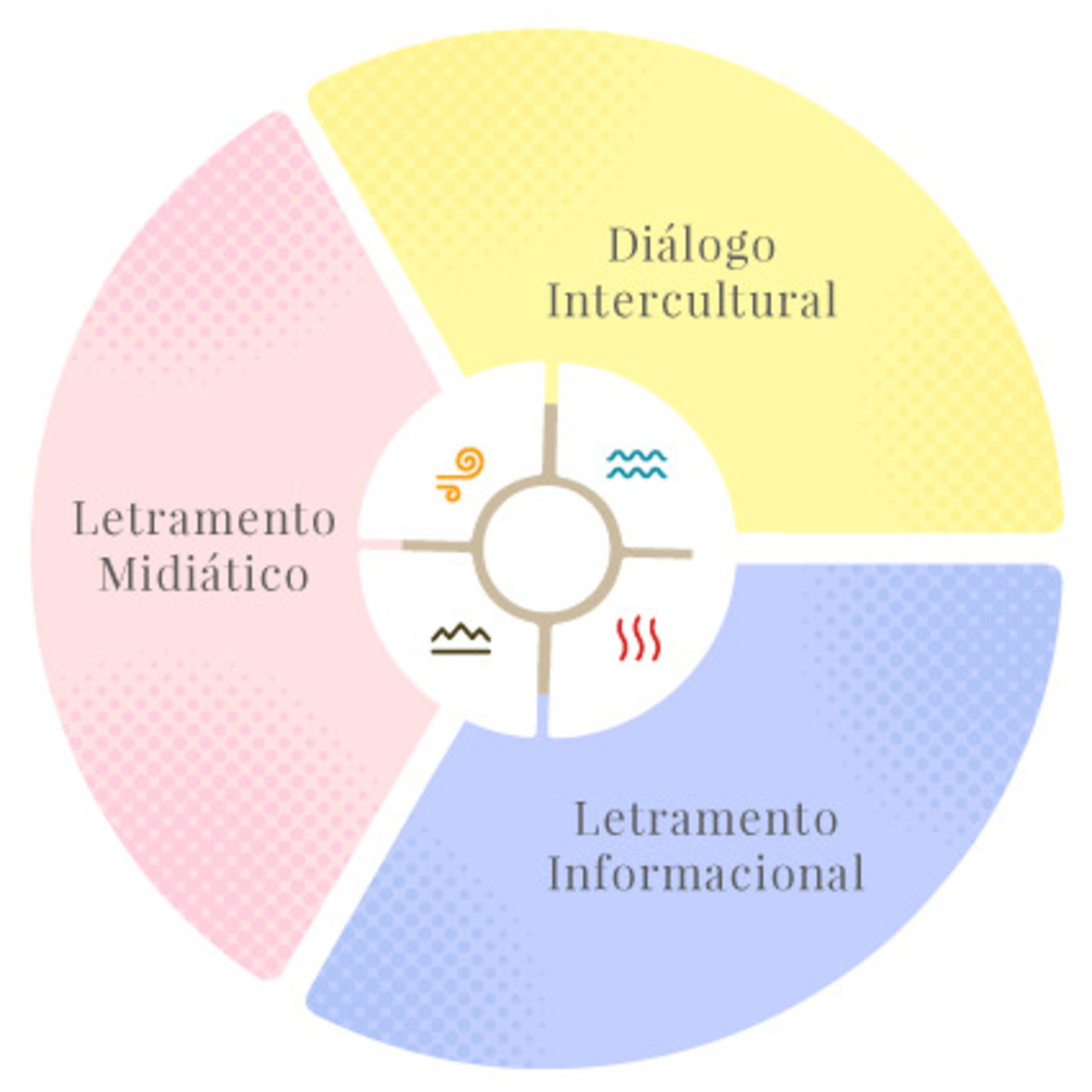
Este curso quer pensar junto com você sobre um fenômeno recente no Brasil, que é a presença de uma grande quantidade de informação via mundo digital. Vamos mostrar diferentes caminhos do que podemos fazer com essa quantidade incrível de midias e como participar da construção de conteúdo digital de maneira sóbria e segura. Além disso, nós fomos buscar conselhos de várias lideranças comunitárias, e você terá acesso a suas percepções e análises nos videos de cada semana do curso. Querer saber o que pensa quem é diferente de nós é sempre um bom início de investigação.
Read more
Este curso quer pensar junto com você sobre um fenômeno recente no Brasil, que é a presença de uma grande quantidade de informação via mundo digital. Vamos mostrar diferentes caminhos do que podemos fazer com essa quantidade incrível de midias e como participar da construção de conteúdo digital de maneira sóbria e segura. Além disso, nós fomos buscar conselhos de várias lideranças comunitárias, e você terá acesso a suas percepções e análises nos videos de cada semana do curso. Querer saber o que pensa quem é diferente de nós é sempre um bom início de investigação.
Este curso quer pensar junto com você sobre um fenômeno recente no Brasil, que é a presença de uma grande quantidade de informação via mundo digital. Vamos mostrar diferentes caminhos do que podemos fazer com essa quantidade incrível de midias e como participar da construção de conteúdo digital de maneira sóbria e segura. Além disso, nós fomos buscar conselhos de várias lideranças comunitárias, e você terá acesso a suas percepções e análises nos videos de cada semana do curso. Querer saber o que pensa quem é diferente de nós é sempre um bom início de investigação.
Há uma tradição de pensar a filosofia contemporânea no Brasil como um modo de pensar a nossa realidade. Os filósofos são aqueles que pensam sobre o mundo, sobre o que acontece no mundo, e que nos atualizam com reflexões sobre a nossa vida e as nossas relações
What's inside
Syllabus
Alfabetização midiática e informacional: uma introdução
Bem vindo ao curso de Alfabetização Midiática, informacional e Diálogo Intercultural! Neste módulo você terá disponível uma introdução de recursos e informações que te levarão à uma maior capacidade de compreender porque os meios de comunicação e outros provedores de informações são importantes para o desenvolvimento e as sociedades democráticas, aprender sobre o que os meios de comunicação e outros provedores de informações devem fazer para apoiar o desenvolvimento e a democracia, reconhecer a necessidade de informação, aprender como melhor localizar e acessar informações necessárias e muitos outros aprendizados que a Alfabetização Midiática e Informacional e o Diálogo Intercultural pode lhe proporcionar em termos de conhecimento.[Este curso, do módulo 1 ao 10, é uma tradução e adaptação do curso Midia and Information Literacy da UNESCO, realizadas pelo Grupo de Pesquisa Multilinguismo e Interculturalidade no Mundo Digital (por Robson Monteiro, Bruno Nery, Nátaly Pereira e Claudia Wanderley), no Centro de Lógica, Epistemologia e História da Ciência (CLE) em parceria com Débora Mazza, Nima Spigolon e Jackeline Mendes da Faculdade de Educação (FE) da Universidade Estadual de Campinas (UNICAMP)]. Seja bem vinda! Seja bem vindo!
Read more
Syllabus
Good to know
Save this course
Reviews summary
Unesco's media literacy: essential learning and practices
Activities
Mentorar outros alunos no curso ou em tópicos relacionados
Show steps
Compartilhe seus conhecimentos e habilidades com outros alunos, oferecendo orientação e apoio em tópicos relacionados ao curso ou áreas de interesse.
Show steps
-
Identifique alunos que possam se beneficiar de sua orientação.
-
Ofereça seu apoio e orientação em áreas onde você possui conhecimento e experiência.
-
Forneça feedback construtivo e incentive o crescimento e o aprendizado.
-
Acompanhe o progresso dos alunos e ajuste seu apoio conforme necessário.
-
Reflita sobre sua experiência de orientação e identifique áreas de melhoria.
Show all one activities
Mentorar outros alunos no curso ou em tópicos relacionados
Show steps
Compartilhe seus conhecimentos e habilidades com outros alunos, oferecendo orientação e apoio em tópicos relacionados ao curso ou áreas de interesse.
Show steps
- Identifique alunos que possam se beneficiar de sua orientação.
- Ofereça seu apoio e orientação em áreas onde você possui conhecimento e experiência.
- Forneça feedback construtivo e incentive o crescimento e o aprendizado.
- Acompanhe o progresso dos alunos e ajuste seu apoio conforme necessário.
- Reflita sobre sua experiência de orientação e identifique áreas de melhoria.
Career center
Researcher
Librarian
Fact Checker
Information Architect
Public Relations Specialist
Journalist
Editor
Instructional Designer
Teacher
Media Planner
Archivist
Social Media Manager
Digital Marketing Manager
Content Manager
Information Security Analyst
Reading list
Share
Similar courses
OpenCourser helps millions of learners each year. People visit us to learn workspace skills, ace their exams, and nurture their curiosity.
Our extensive catalog contains over 50,000 courses and twice as many books. Browse by search, by topic, or even by career interests. We'll match you to the right resources quickly.
Find this site helpful? Tell a friend about us.
We're supported by our community of learners. When you purchase or subscribe to courses and programs or purchase books, we may earn a commission from our partners.
Your purchases help us maintain our catalog and keep our servers humming without ads.
Thank you for supporting OpenCourser.



